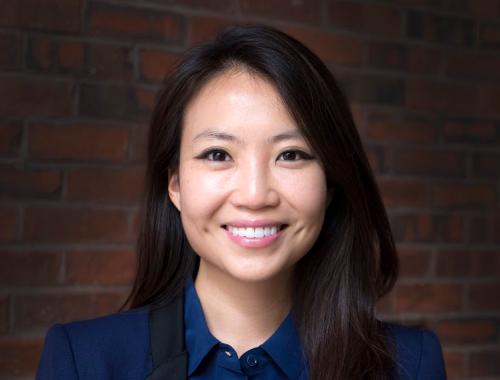For Washington to shape the US-China relationship to its advantage, it must engage Beijing from a position of strength. That means investing in its own economic resilience, military..."
Brookings Affiliation
Research Areas
-
Defense & Security
Sub-Topics
-
International Affairs
Sub-Topics
-
Asia & the Pacific
Sub-Topics
China Japan North Korea Northeast Asia South Korea Southeast Asia Taiwan
Additional Expertise
- Chinese foreign policy
- U.S.-China relations
- East Asian regional security and politics
- U.S. alliances
- Korean Peninsula
Patricia M. Kim is a fellow at Brookings and holds a joint appointment to the John L. Thornton China Center and the Center for Asia Policy Studies. She is an expert on Chinese foreign policy, U.S.-China relations, and the politics and security of East Asia. At Brookings, she co-leads the Global China Project and the Brookings-CSIS Project on Advancing Collaboration in an Era of Strategic Competition.
Previously, Kim served as a senior China specialist at the U.S. Institute of Peace, where she directed a project on U.S.-China strategic stability and served as the principal investigator for a major report on China’s growing footprint in Africa and the Middle East. She was also a Stanton Nuclear Security Fellow at the Council on Foreign Relations, International Security Program Research Fellow at the Harvard Kennedy School of Government’s Belfer Center for Science and International Affairs, and postdoctoral fellow at the Princeton-Harvard China and the World Program at Princeton University.
Kim’s writing and analysis have been widely featured in prominent journals and media outlets such as Foreign Affairs, The New York Times, The Wall Street Journal, and The Washington Post. She frequently briefs U.S. government officials in her areas of expertise and has testified before the House Intelligence Committee and the House Foreign Affairs Subcommittee on Terrorism, Nonproliferation, and Trade.
Kim received her doctoral degree from the Department of Politics at Princeton University and her bachelor’s degree with highest distinction in political science and Asian studies from the University of California, Berkeley. She is fluent in Mandarin Chinese and Korean, and proficient in Japanese. Kim is a member of the National Committee on U.S.-China Relations and a term member of the Council on Foreign Relations.
Affiliations:
- Council on Foreign Relations, term member
- National Committee on U.S.-China Relations, member
-
Past Positions
- Global Fellow, Woodrow Wilson Center
- Senior Policy Analyst on China, United States Institute of Peace
- Visiting Scholar, School of International and Public Affairs, Columbia University
- Stanton Nuclear Security Fellow, Council on Foreign Relations
- Postdoctoral Fellow, Princeton-Harvard China and the World Program
- Research Fellow, International Security Program, Belfer Center for Science and International Affairs, Harvard Kennedy School of Government
-
Education
- Ph.D., Princeton University
- B.A., University of California, Berkeley
Media and Appearances
Patricia M. Kim and Thomas Wright joined CSIS’s “Impossible State” Podcast to discuss Trump and the autocratic axis.
[The two big events in China were] a diplomatic coup for Xi, [showing China has] options apart from the West. It doesn’t feel that it needs to go out of its way to accommodate US..."
Kim Jong-un’s visit to Beijing serves multiple purposes. It enables him to renew ties with Xi Jinping — whom he has not met in person since 2019 and with whom relations have cooled..."
It’s hard to imagine Beijing would publicly side with Washington against Moscow or appear to bow to American pressure by cutting purchases of Russian oil. [Any new tariffs announced by..."
[Recent weeks have signaled] a mutual interest in creating the conditions for a leader-level meeting. [While no agreement was announced, both sides seem to have] achieved their..."
[The tariff shock gives U.S. partners in the Indo-Pacific an urgent need to hedge away from the U.S. economically.] They’re going to be looking towards each other and towards China. I..."
There’s just overall confusion about the Trump administration’s real intentions, whether it’s genuinely seeking a deal or simply going to escalate tensions… They want to know what kind..."
China has no interest in the rise of a militarily strengthened and emboldened North Korea that might take greater risks and bring chaos to the region.
[China, Japan, and South Korea] seem content on using their [trilateral summit] to signal the resumption of regular communications by committing to cooperation on common challenges. No..."
